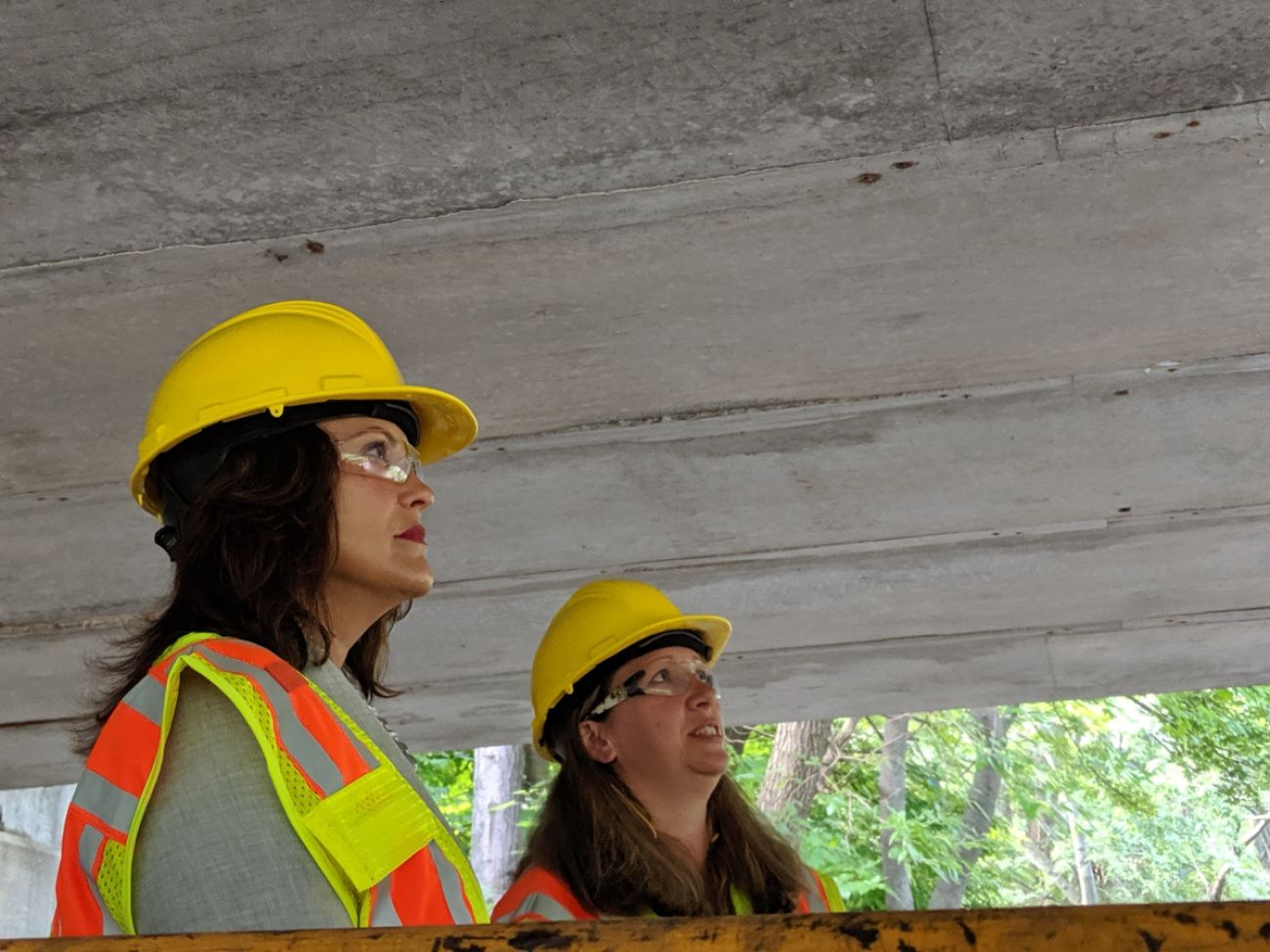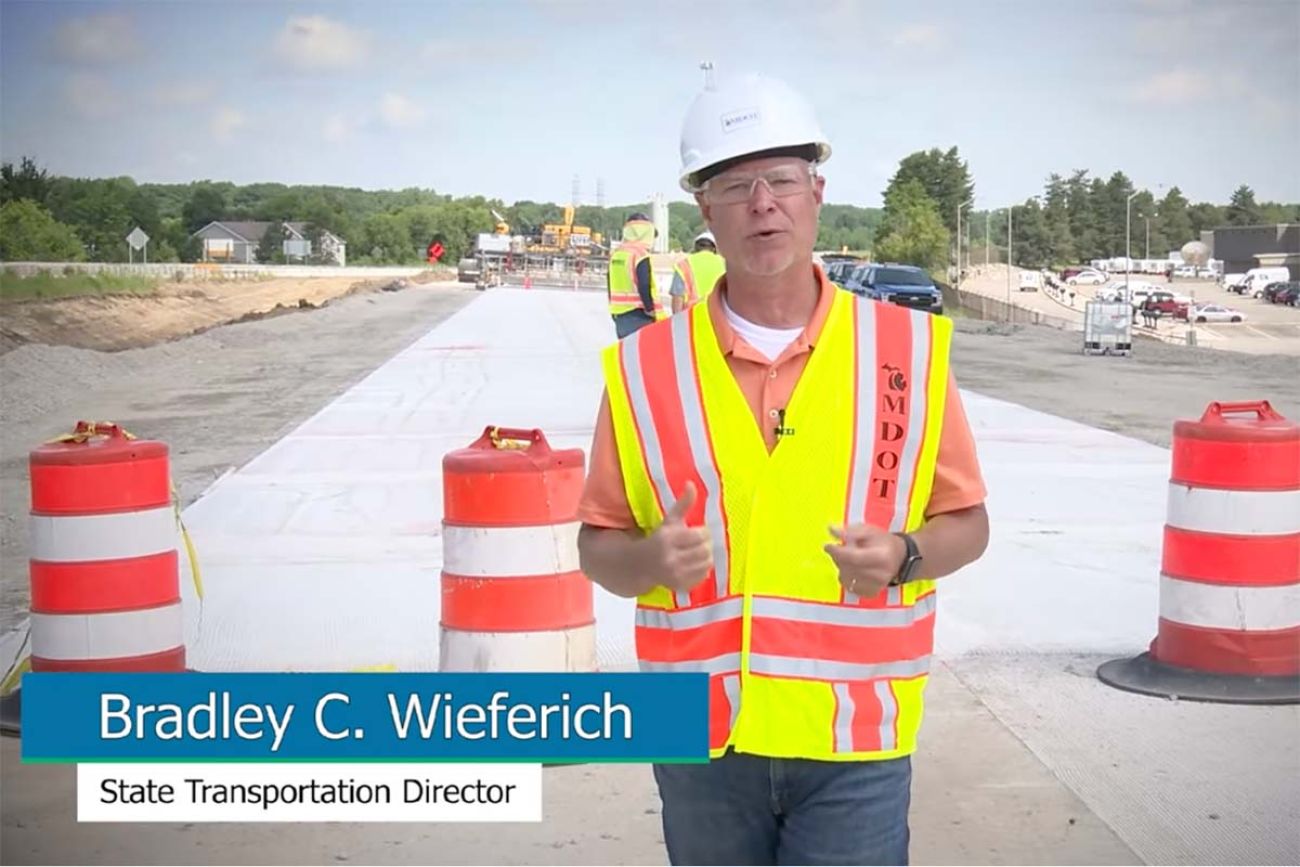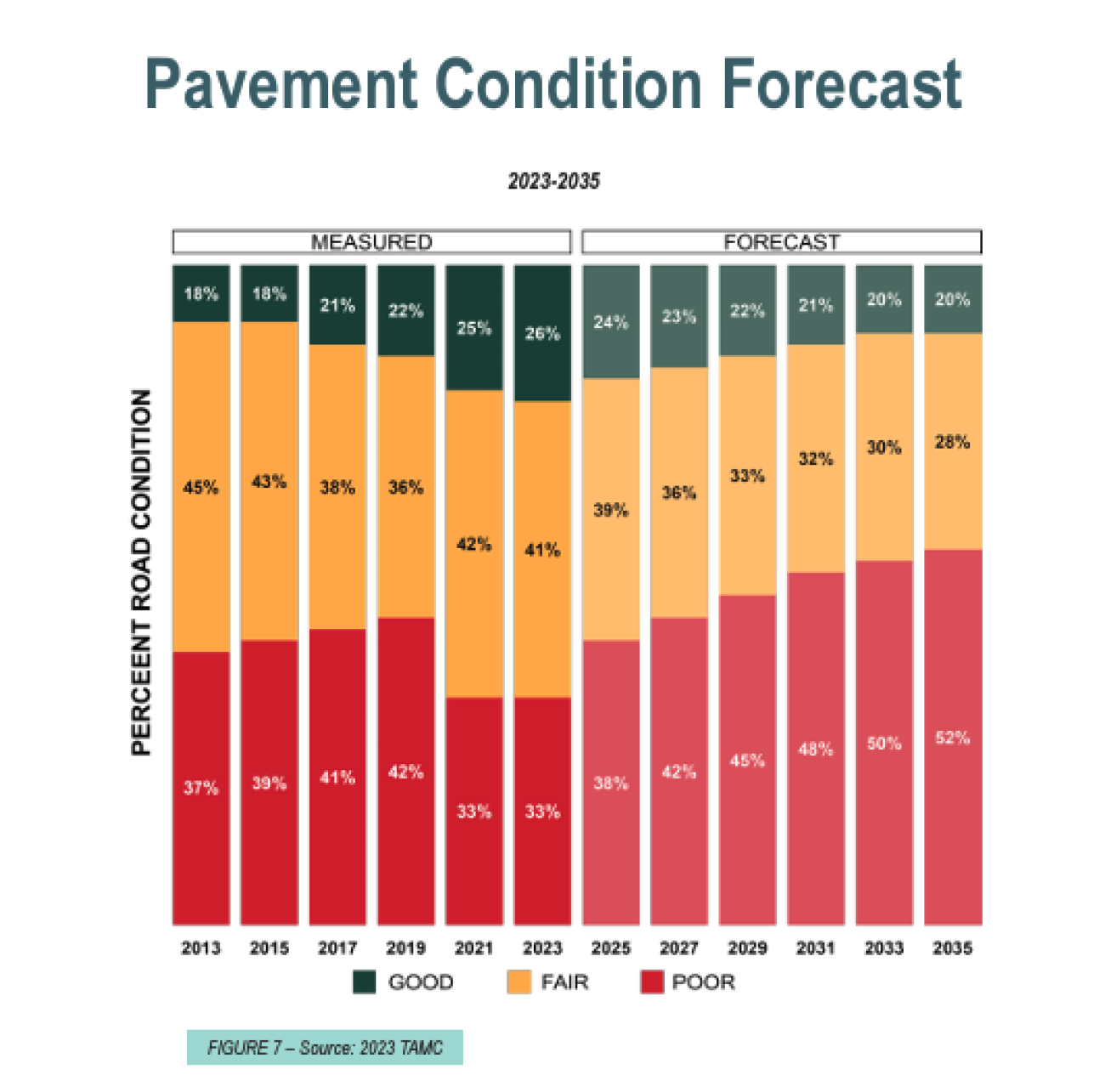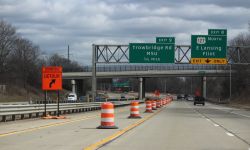In Michigan, 'fixing the damn roads' got really darned expensive

- Inflation, worker shortages eat into Michigan’s road budget, despite recent one-time state and federal investments
- State spending on road and bridge programs nearly doubled between 2015 and 2023, but state’s purchasing power only up 50%
- Long-term infrastructure funding solution remains elusive, and transportation industry predicts steep decline in road quality
Don’t let the road crews, traffic cones and long commutes of summer construction season fool you — Michigan’s struggle to fix the roads is far from over.
Despite Gov. Gretchen Whitmer's $3.5 billion highway bonding program, experts say record construction costs caused by inflation, worker shortages and more expensive reconstruction repairs the state is pursuing mean road funding is not going as far as it once did.
And absent a long-term funding solution, Michigan road and bridge quality is still projected to decline after some recent modest improvements.
“With the dollar amount that it took me to pave a mile of roadway in 2019 … today I’m doing two-thirds of a mile,” Michigan Department of Transportation Director Bradley Wieferich said at the recent Mackinac Policy Conference, calling the agency’s decreased buying power a “big constraint on our program moving forward.”
Six years after Whitmer first won election on a pledge to “fix the damn roads,” Michigan is approaching the tail end of the five-year, $3.5 billion Rebuilding Michigan road bonding program that the Democratic governor launched after legislators rejected her proposed fuel tax hikes.
Related:
- A mileage tax for Michigan motorists? Lawmakers want $5M for pilot program
- Michigan bill would increase fines for drivers with loud cars
- Road salt use dips 37% in Michigan warm winter, saving millions, easing pollution
MDOT has about $700 million in authorized bond funding left and is on track to complete scheduled projects, such as road rebuilds on Jackson County’s Interstate 94 corridor, Oakland County’s Interstate 696 and Ingham County’s US-127 (though the state is expected to be paying back the bonding debt for decades).
Michigan is also benefiting from billions in one-time infrastructure funding from the federal government.
Zachary Kolodin, chief infrastructure officer and director of the Michigan Infrastructure Office, characterized the bonding program as a “major success,” noting projects funded by the bonds have “dramatically improved the quality of our roads, especially along our most traveled highways.”
But the bonding program doesn’t help fix local roads or meet all of Michigan’s outstanding infrastructure needs, and long-standing neglect has in many cases required more costly repairs.
Between 2015 and 2018, during then-Gov. Rick Snyder’s second-term, MDOT figures show the agency spent about $4.8 billion in state and federal dollars on projects covering 15,231.7 lane miles on state-owned roads and bridges. During Whitmer’s first term, spanning from 2019 through 2022, MDOT spent nearly $7 billion on projects covering 16,051.1 lane miles.
In 2023, projects covering 3,812.7 total lane miles of Michigan roads and bridge trunkline cost $1.95 billion.
Transportation officials attribute differences in spending trends to the types of projects that were getting done before the latest funding boost: While the state had primarily been focused on resurfacing, patch jobs and preventive maintenance prior to the bond program, many recent projects have involved complete road rebuilds, a longer-lasting but far costlier fix.
“It wasn’t that before Rebuilding Michigan that we were fixing them incorrectly, but we just didn’t have the funding to do the robust long-term, full reconstruction fix,” Wieferich said at the Mackinac conference.
Because of inflation, it also simply costs more to rebuild infrastructure than it used to.
Though state spending on road and bridge programs nearly doubled between 2015 and 2023, jumping from $2.9 billion to $5.7 billion a year, a massive post-pandemic jump in construction cost inflation has meant the state’s purchasing power has only increased by 50%, according to a recent study by the Citizens Research Council of Michigan.
In 2023 alone, the unexpected spike reduced the purchasing power of Michigan’s road agencies by more than $700 million, the report’s author, Eric Paul Dennis, told Bridge Michigan. Over the last three years, he estimated inflated construction costs have eaten up roughly $2 billion.
“It’s really difficult for road agencies in Michigan to rebuild and maintain their system in a state of good repair, even though…it would seem that we have so much more money than we did in past years,” he said.
What’s happening and why
Prior to 2020, construction cost inflation was relatively predictable — MDOT and other Michigan road agencies generally budgeted for a roughly 4% increase in construction costs year-over-year in long-term planning.
A lot has changed since then.

Between 2020 and 2023, construction cost inflation increased by an average 26.4% in Michigan, according to the Citizens Research Council, with costs ballooning even higher in metro Detroit and other urban areas.
Nationally, the Federal Highway Administration estimates that construction costs have increased by 62% over the same time frame.
MDOT estimates provided to Bridge in late 2022 put the statewide average cost of fully reconstructing one lane mile of road at $3.2 million, while rehabilitating an existing lane mile cost an average $792,000.
New estimates provided to Bridge this week show how costs have risen: Reconstructing one lane mile now costs an average $5.2 million, and rehabbing one existing lane mile costs an average $1.3 million.
In the aftermath of the COVID-19 pandemic, the cost of materials commonly used in road construction like concrete, asphalt and diesel skyrocketed.
Those prices are beginning to level out — but the number of skilled laborers available to take on road and bridge work in Michigan hasn’t kept pace with the one-time funding increases, leading to higher premiums on existing construction crews, Dennis said.
“It’s difficult for construction firms to ramp up to meet the demand that has been imposed by this additional funding,” he said, later adding, “We’re spending more and more on this, but … inflation is eating more and more away.”
A perennial issue
The rising cost of roads further complicates Michigan’s longstanding problem with funding infrastructure fixes.
Michigan’s roads and bridges are crumbling faster than agencies can repair them, and the problem is expected to compound over time without significant new investments.

A 2023 study from the Michigan Infrastructure and Transportation Association, a construction industry trade group, projected that state officials need to spend $3.9 billion more per year to fully fund road repairs.
Proposals to come up with that kind of cash have long proven politically unpopular, and though public officials have flirted with new funding concepts like mileage fees and tolling, nothing has stuck.
Whitmer, who continues to claim she’s “fixing the damn roads,” was forced to abandon a 2019 proposal to hike fuel taxes by 45 cents per gallon after it was deemed a political nonstarter. She hasn’t pushed for another tax hike and recently acknowledged the lack of progress on a vexing policy challenge she vowed to solve in her first 2018 campaign.
“I know that there’s a lot of orange barrels … but we still haven’t done a long-term infrastructure solution. We haven’t, despite all the work you see happening,” Whitmer said last month. “It doesn’t get easier or cheaper until we actually have a longer-term solution.”
The Michigan Transportation Asset Management Council rated 26% of all federal-aid roads (like highways) in good condition for 2023, up slightly from the 25% in 2022. But overall, conditions have declined a net 5% since 2022 and are projected to continue to deteriorate.
The number of those roads in good condition will drop to 20% by 2035, analysts predicted, while the rate of roads in poor condition will increase from 33% to 52% over that time frame.
Construction cost inflation hasn’t helped the situation, but it didn’t cause it, said Lance Binoniemi, the Michigan Infrastructure and Transportation Association’s vice president of government affairs.
“We've had a need in this state, and it's simply just because we've underfunded for decades,” he said. “Every time we’ve seen a road funding increase — which is not very many times — it was never enough. It wasn't on time, and it was never enough.”
See what new members are saying about why they donated to Bridge Michigan:
- “In order for this information to be accurate and unbiased it must be underwritten by its readers, not by special interests.” - Larry S.
- “Not many other media sources report on the topics Bridge does.” - Susan B.
- “Your journalism is outstanding and rare these days.” - Mark S.
If you want to ensure the future of nonpartisan, nonprofit Michigan journalism, please become a member today. You, too, will be asked why you donated and maybe we'll feature your quote next time!




